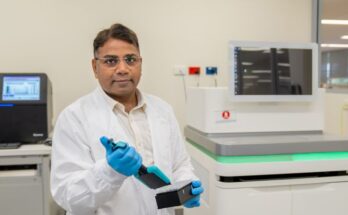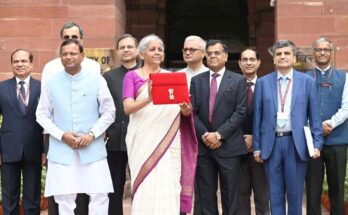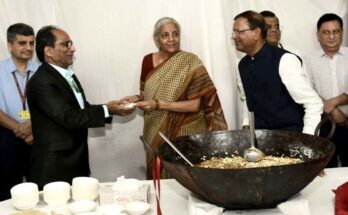Farmers around the world can be helped to grow the best food that is fit for future generations with help from a new development in the partnership between the University of Reading and International Crops Research Institute for the Semi-Arid Tropics (ICRISAT).
A Memorandum of Understanding (MoU) was signed today and will see nutrition/health and crop scientists from the two internationally-renowned research centres commit to working closer together. Their research will focus on tackling how crops will provide a healthy and sustainable diet for future generations that face multiple challenges including climate change and growing worldwide obesity.
Researchers from both institutions will be working together to develop scientific understanding and training resources to address key questions on the value of food crops. Through ICRISAT’s expertise working in the toughest and driest zones across the world, the work will look to address key food system questions in places that are worst hit by water shortages, degraded soils and poverty and also those hardest hit by climate change.
Professor Ian Givens, Director of the Institute of Food, Nutrition and Health at the University of Reading said, “We are excited about this new partnership that will provide opportunities to tackle the biggest questions in global food production and are delighted that ICRISAT has chosen to work with us on this challenge.
“For many years now the University of Reading has pioneered new and important research on the relationship between diet and chronic disorders such as cardiovascular disease. More recently, this has extended into the relationship between diet and more detailed predictors of disease risk including effects on brain function, a complex story also involving the gut microbiota.
“An important aspect of modern nutrition is obtaining a clear understanding of the nutritional characteristics of foods, both in terms of traditional nutrients and their impact on our physiology e.g. cognition.
“This approach to modern nutrition is one of the key areas that we will be working with ICRISAT in their fight to provide food fit for future generations.”
The role of gut microbiome in human nutrition, the effect of diet on human health and the implications for plant breeding are among a series of topics that the partnership will begin to focus on. Research will concentrate on crops called ‘Smart Foods’, such as the millets, sorghum, chickpea, pigeonpea and groundnuts.
The development of research into these crops grown in drylands of Asia and Sub-Saharan Africa could see breakthroughs that support new, more resilient crops grown alongside traditional staples to feed more than two billion people living in these areas. The new work will also ensure that research into these crops will address the fact that more than 650 million in such areas are at the highest risk of malnutrition and food scarcity, while also meeting a growing consumer demand around the world for more nutritious foods.
Prof. Rajeev Varshney, Research Program Director for Genetic Gains and Director of Centre of Excellence in Genomics and Systems Biology, ICRISAT, said, “We are very excited to have this partnership with IFNH, University of Reading. With their expertise in cutting-edge areas of microbiome and nutrition research, and our research experience in genomics and modern breeding of Smart Food crops, ICRISAT, with its partners, is well positioned to contribute to improving nutrition in India and Sub-Saharan Africa, and support countries that provide a major proportion of food to the rest of the world.”
Joanna Kane-Potaka, Assistant Director General of External Relations at ICRISAT and Executive Director of Smart Food said, “Sustainable food and health solutions will need to ensure a three-fold purpose—that they are good for you, good for the planet and good for the farmer.
“Such solutions are enabled by moving away from working in silos and finding answers to challenges together. We have a vision to bring these Smart Foods into mainstream diets. This is vital if we are to have a lasting positive impact on health, the environment and the farmers,” she added.
Ahead of the formal signing of the MOU, representatives from both institutions joined a lecture event held by the Tropical Agriculture Association. Lectures, delivered by Professors Julie Lovegrove and Chris Reynolds from the University of Reading and Prof. Varshney, outlined the need for “smarter foods” which provide healthy diets for humanity and the environment.





good article,thank you.
great work thanks
Good initiative!